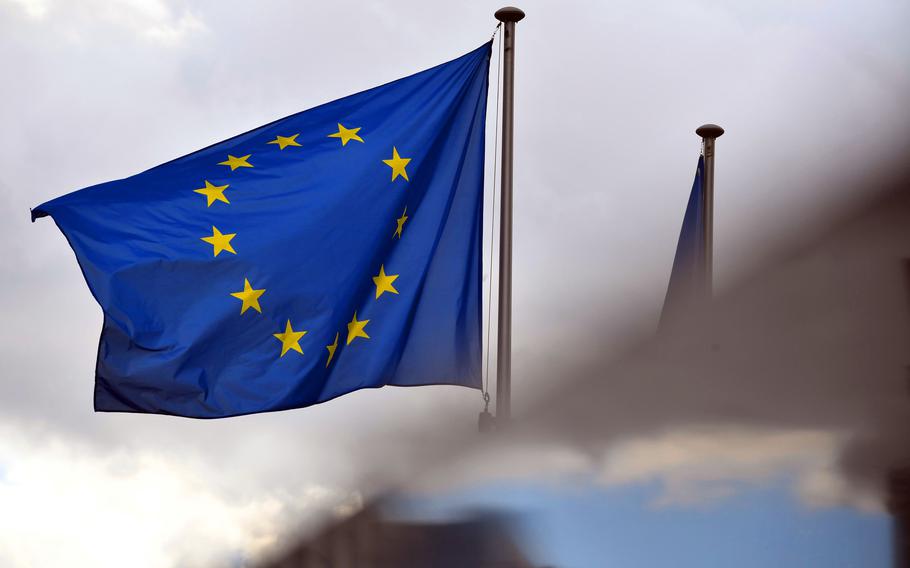Europe
EU touts unity on any Russia sanctions but won’t show its hand
Bloomberg February 8, 2022

A European Union flag flies in Brussels on Oct. 7, 2020. (Geert Vanden Wijngaert/Bloomberg)
European Union member states say they agree that tough sanctions should be imposed on Russia in the event it invaded Ukraine, even as detailed plans have yet to be shared on paper or discussed as a group.
The European Commission, the bloc’s executive body, has taken the lead in mulling possible penalties for Russia, which has positioned more than 130,000 troops near Ukraine’s border, according to U.S. and U.K. estimates, while denying any intention to attack.
But it has held back on providing written details to the 27 member nations, which would need to give their unanimous backing to any action, according to diplomats who asked not to be identified talking about the preparations.
Those diplomats pointed to three reasons that no papers are being shared.
They said officials want to avoid leaks that could give Russia the opportunity to run a cost-benefit analysis of possible penalties. They are eager not to highlight differences between states, especially if they were to start picking and choosing measures from a package. And EU officials have said concrete proposals would only be shared if Russia actually took action, since sanctions are not a tool for deterrence.
However, the EU’s largest countries have been working on the measures in small groups, as well as with the U.S. and the commission. Details of some proposals have made their way into several press reports.
Possible measures could be tailored in severity depending on what if anything President Vladimir Putin did. And they would broadly fall into several categories, including restrictions on the refinancing of Russian sovereign debt, financial sanctions, and the singling out of individuals and entities close to the Kremlin.
The EU also hasn’t held a group discussion within the bloc about the details of potential sanctions, with the biggest western European members among the countries most keen not to disclose specifics.
Instead, the commission has held talks with member states individually to discuss the economic impact the measures could have at home, diplomats say. Trade restrictions would see European economies take a hit and there are concerns Russia could respond by limiting the energy exports that countries like Germany depend on.
Some member states have been doing internal calculations and offered up suggestions of their own to the commission, including stating red lines.
Italy, Germany and France have been most involved in coordinating a package with the Biden administration and the commission, and Germany has pushed for exemptions for the energy sector from some of the financial measures under discussion, according to people familiar with the matter and documents seen by Bloomberg.
They have signaled that cutting Russia off from the international payments system, Swift, is a no-go, the people said.
And while the U.S. and the EU are coordinating, they might not implement exactly the same measures.
The lack of detail has limited the extent to which member states can prepare for the economic fallout from any sanctions, according to one EU diplomat.
But Peter Stano, a spokesperson for the EU’s foreign affairs arm, said the discussions have remained vague for good reason.
“At this stage it is premature to discuss concrete proposals because they depend on and would be submitted only in reaction to Russia’s actions,” he said. “Those concrete proposals would then need to be discussed and agreed by the member states.”